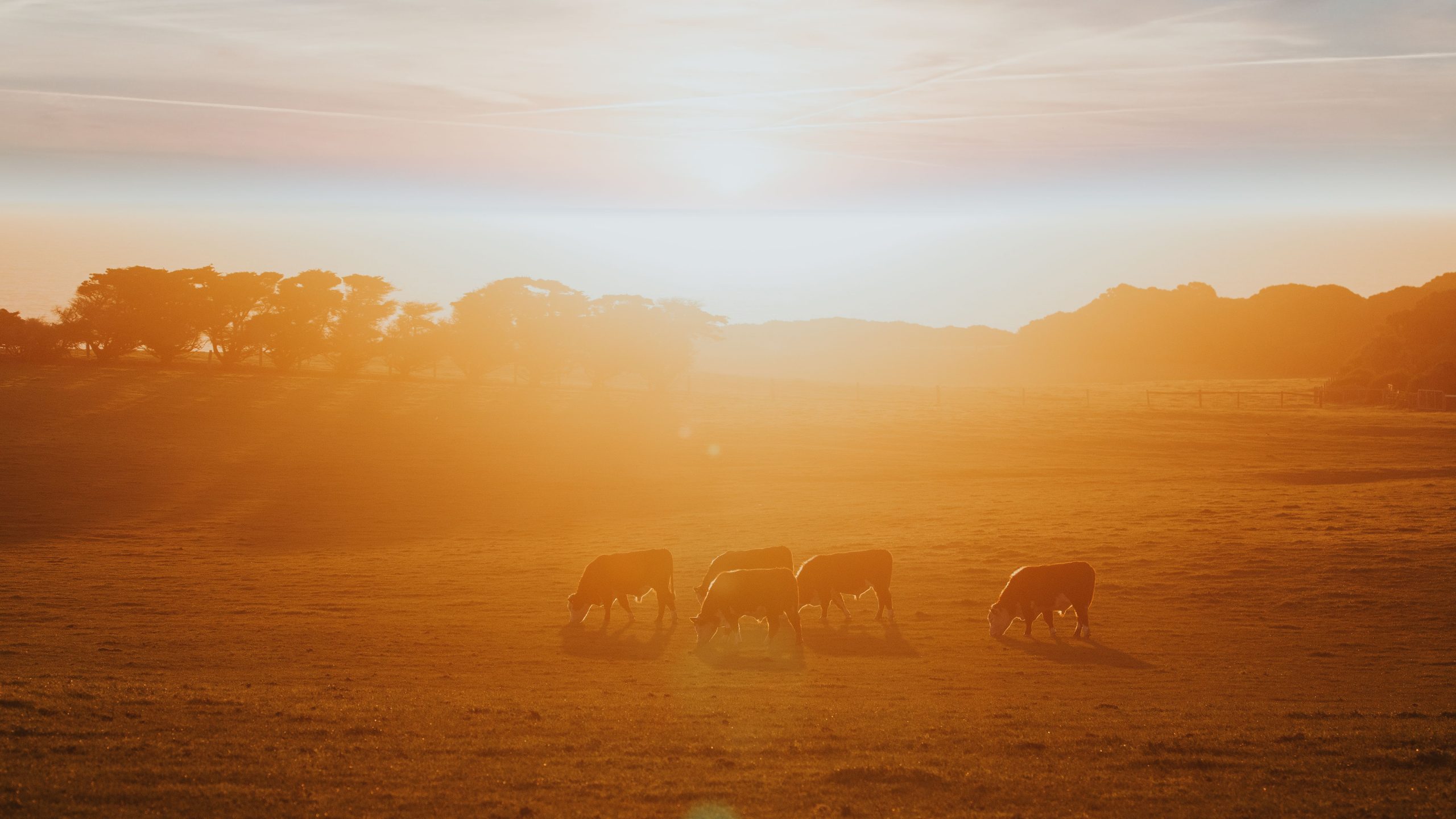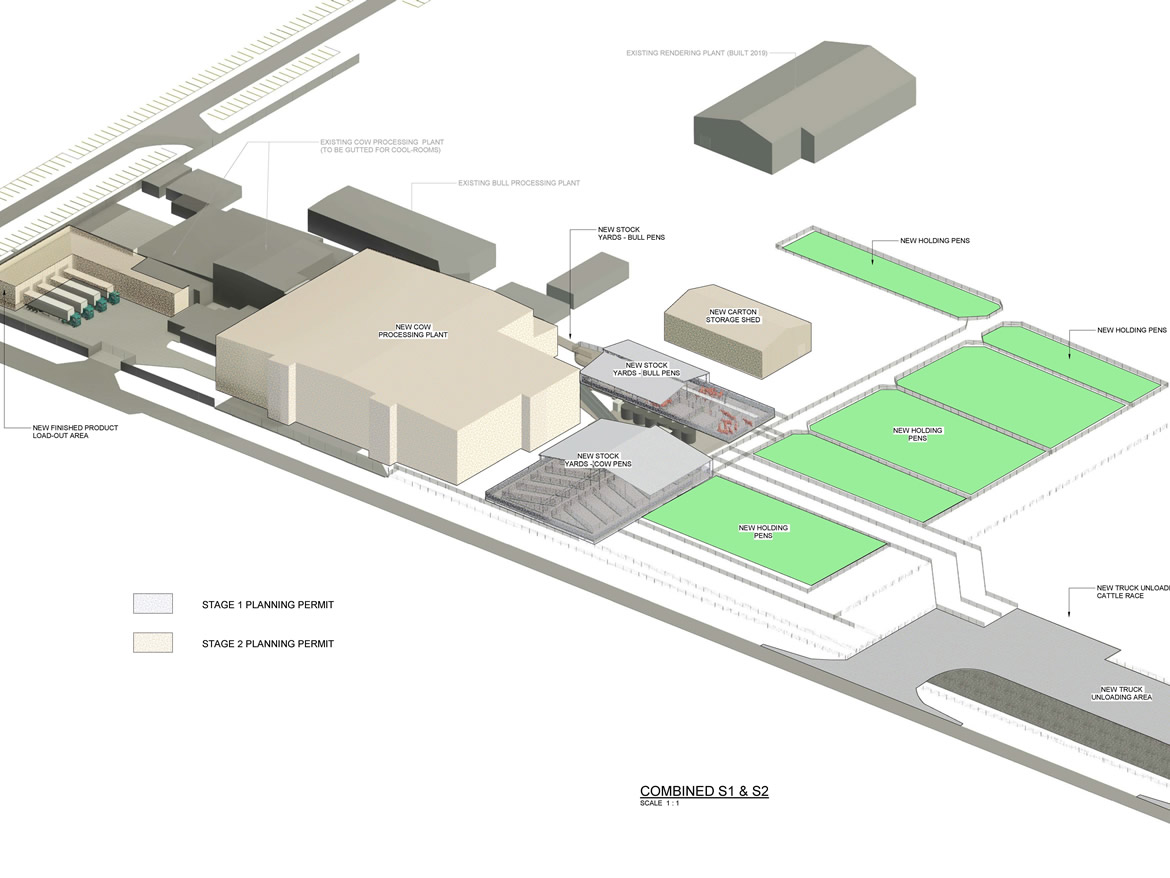Gordon Clements has been around cattle all his life. Even today as he approaches 78, he still owns a dairy farm near Wyuna where a share farmer is currently milking 100 cows, soon to increase to 200.
He’s also turned off his fair share of beef cattle over the years, mainly from the family property at Doreen south of Whittlesea. But Melbourne’s sprawl is catching up and he and his wife have just moved on to 100 acres north of Whittlesea where he plans to continue running a few cattle.
“I never thought Melbourne would spread out so far. We had a farm at Bundoora that had been in the family since the 1840’s but it was compulsorily acquired for the new RMIT campus in 1969.
“We moved on to Doreen and continued dairying. There used to be dozens of dairy farms in this area but they started disappearing about 20 years ago.
“That’s when I bought the place up north – I wanted to continue dairying. It had always been part of my life and I wanted to stick to it. Perhaps I am crazy?” He mused.
“It was a cropping and sheep operation that we’ve converted to dairy. We’ve built it up to 1000 acres now but it’s a long way from capacity – we’re not trying to break any records, just get a reasonable return for the share farmer.”
Liveweight or over the hooks
Until recently Gordon had always sold his cattle over the hooks or through the yards.
“We normally take our culls over to Greenham’s at Tongala with our own truck. I think Greenham is as good a market as you can get hold of. Recently, we had a few cows to get rid of and it was a bit awkward, so I asked Graeme (Pretty) if he could organise a pickup.
“Their system is very, very good – they weigh them on to the truck and pay you on the spot. But I’ve never been too sure about liveweight so I asked him for the results after they were hung up.
“It was very close – I would have got virtually the same money either way. I really don’t see any problem now in selling liveweight,” Gordon added.
“And the yards aren’t cheap. I sent a few vealers to Pakenham the other day and it costs $60 or $70 a head.
“Sometimes you might think the prices are a bit low but it averages out – I can’t see how you can go wrong selling to Greenham year around.”
Long Connection
And Gordon should know because his connection with Greenham goes back a long way. He remembers carting both dairy cattle and bullocks to the Greenham abattoir at Newport and Altona some 30 or 40 years ago.
“We always sold them over the hooks. I knew Graeme in those days, so it was natural to deal with him again at Tongala when we moved up to Wyuna.”
And while Gordon has been selling to Greenham for a long time his connection with the family goes back even further. As a youngster he worked for Quiney Mawbey & Co at Newmarket in the 1940’s.
Pushbike to Newmarket
“Peter Greenham’s (senior) grandfather, Harry, was a well-known character at the yards in those days. He chewed tobacco and I still remember him spitting it out in the laneways. His son was also called Harry – we called him young Harry. The old man was usually known as ‘HW’. It’s great to see the H. W. Greenham name continuing.
“He used to ride his push bike up to Newmarket Sale Yards from the City Abattoirs. They always bought their cattle standing down in the lanes – perhaps they could judge them better that way.”
Fond memories of the Greenham’s are not the only happy recollections from Gordon’s Newmarket days.
“Working in a place like that really smartens up your footwork. I was a booking clerk and then ended up in the Bourke Street office. I used to help dad with the milking first and then catch the quarter to eight bus in from Bundoora getting to the office before nine.
“Quiney Mawbey continued operating at Mernda for a long time after Newmarket ended and only closed down finally a few years ago,” Gordon said.
Gordon is enjoying the new property and has plans for pasture improvement. He describes it largely as a lifestyle farm but with his cattle history, it’s reasonable to expect a continuing turn off of quality stock.
By Meatworks Messenger













